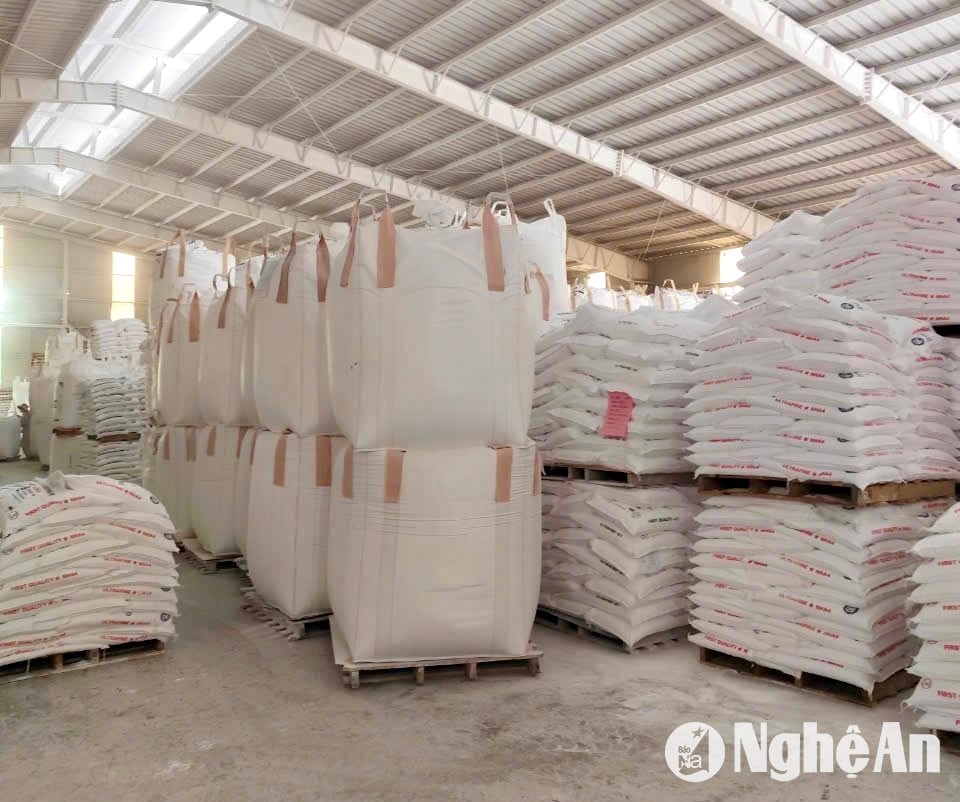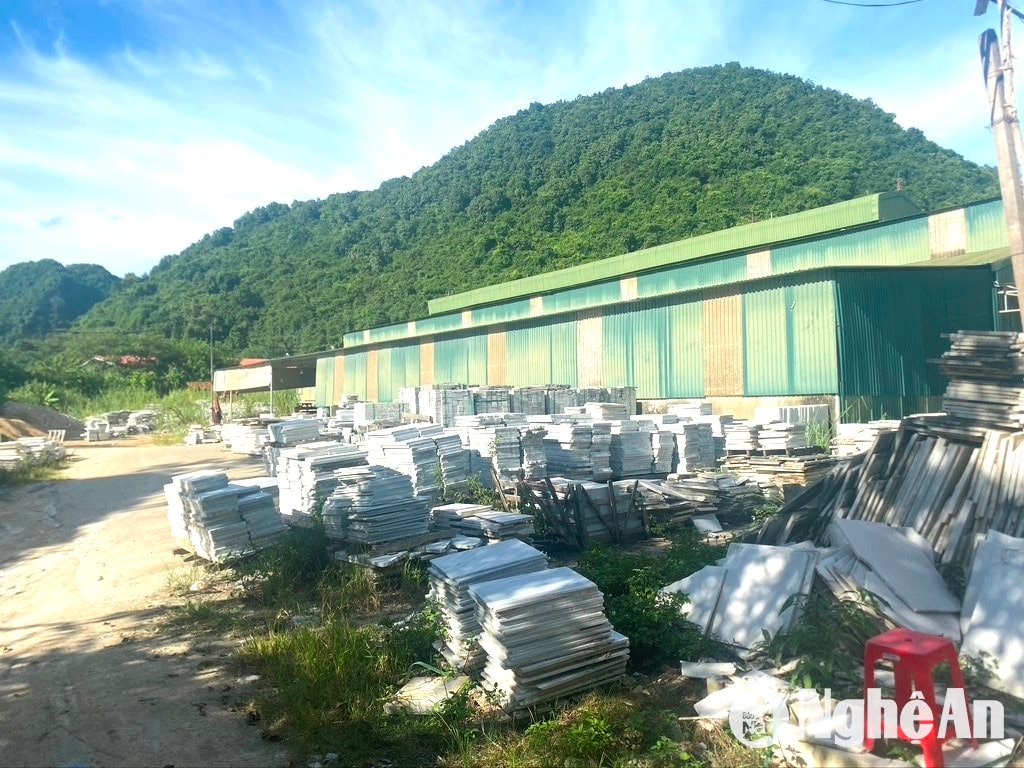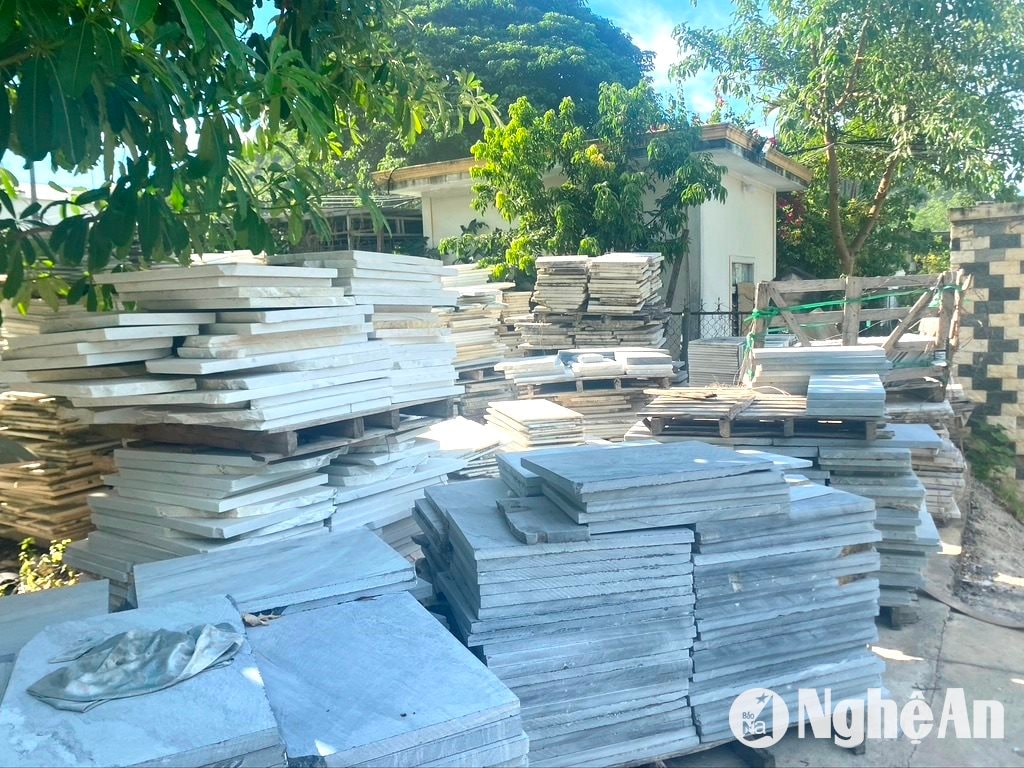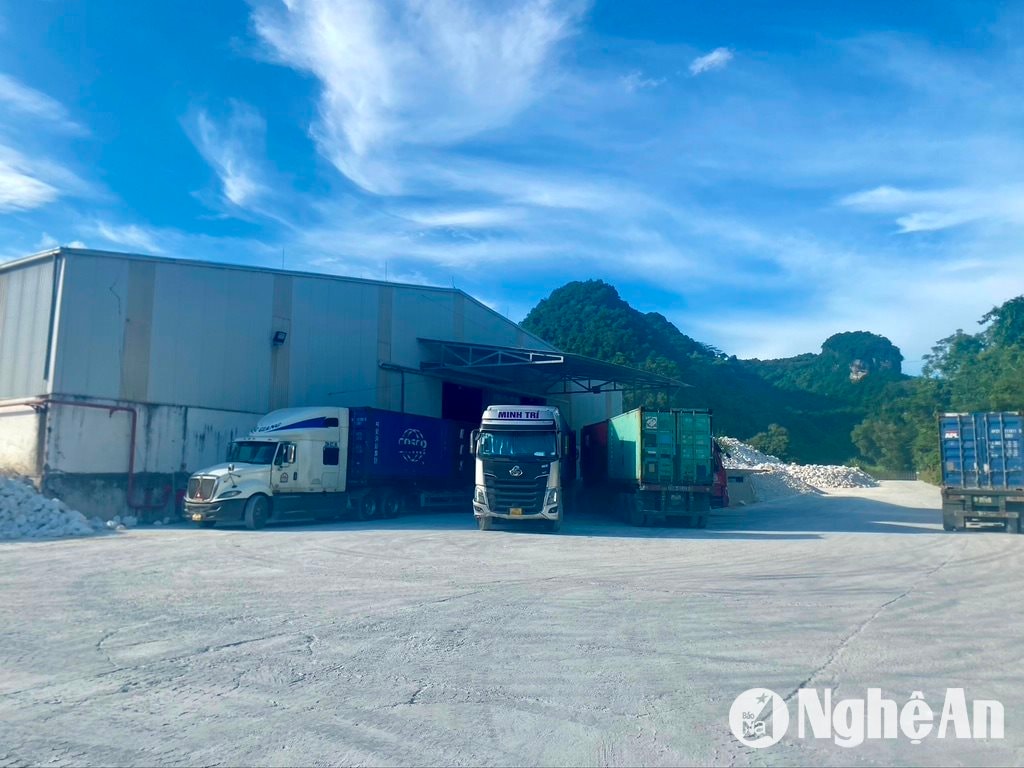Paving stones and stone powder are difficult to sell, many establishments in Quy Hop are operating at a low level.
Recently, the consumption of exported stone tiles and stone powder in Quy Hop district has been difficult, causing production facilities to be in a state of inventory and operating at a standstill.

At this time, at a stone powder processing unit in a small industrial park in Tho Hop commune, Quy Hop district, there is no longer the bustling scene of cars coming in and out transporting stone powder like before, now it is quite quiet.
A representative of this unit said: Stone powder products have long been mainly exported to markets in China, India, etc., but from around May 2024 until now, the consumption market has been particularly difficult, and the amount of stone powder purchased by partners is very limited.
Not to mention that businesses also have to bear low prices and higher shipping costs than previous years. Specifically, in 2023, the price of stone powder was 1.1 million VND/ton, now it is only 500,000-700,000 VND/ton. Due to the difficulty in consumption, our unit currently only dares to produce according to orders.

Mr. Truong Van Hoan - Chairman of Tho Hop Commune People's Committee added: Tho Hop small industrial park, Tho Hop commune currently has more than 40 small and medium-sized mineral processing facilities, of which 3 are stone powder processing facilities for export, the rest are stone cutting and paving processing facilities. For a long time, this small industrial park has created jobs for over 1,000 local workers and neighboring communes.
However, due to difficulties in output, more than 15 facilities have temporarily stopped production, the remaining facilities are operating at a low level, and about 400 workers have had to change to other jobs.
The owner of a facility specializing in processing stone cladding in Thung Khuoc Small Industrial Park, Quy Hop town said: In previous years, stone cladding products were very easy to consume, mainly exported to the Middle East. But in the past, there were times when they did not buy, so now the facility has a large amount of inventory. The stone cladding products have no place to be stored, so they have to be gathered outdoors, so they have become moldy.

In recent years, purchasing power has decreased significantly, orders are few and far between, especially in the period before Tet, about 3 months before Tet, products cannot be sold. After Tet, we hoped to find new orders but there were none, currently we still have to operate at a low level to keep workers.
Mr. Kim Thanh Xuyen - Head of the Economic - Infrastructure Department of Quy Hop district said: The whole Quy Hop district currently has 5 small industrial clusters, including about 20 enterprises exporting mineral products, mainly stone powder and paving stones to other countries. Due to the influence of markets in India, Bangladesh and China limiting consumption, most units have to operate at a low level.
In particular, the amount of unsold tiles is still quite large. The fact that businesses operate at a standstill has caused many consequences such as affecting the district's budget revenue, as well as many workers in the district being unemployed.

In the current difficult period, Quy Hop district creates favorable conditions for businesses such as continuing to upgrade and invest in synchronous infrastructure of small industrial parks, such as electricity systems, roads, drainage systems, etc.
According to forecasts, the mineral processing industry, especially stone cladding and stone powder products, will still face many difficulties. The district recommends that businesses invest in applying advanced science and technology in deep processing and diversifying product lines. Thereby, reducing product costs and competing with the market. Expanding to find domestic and export markets.


.jpg)

